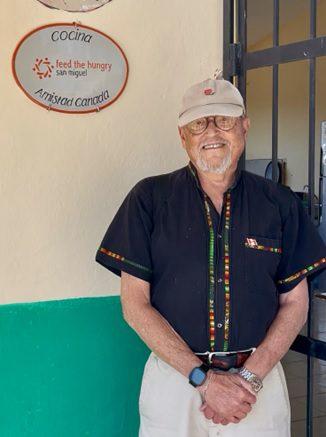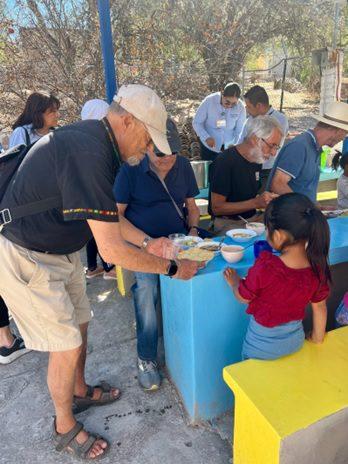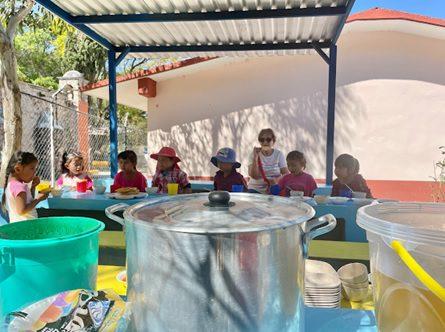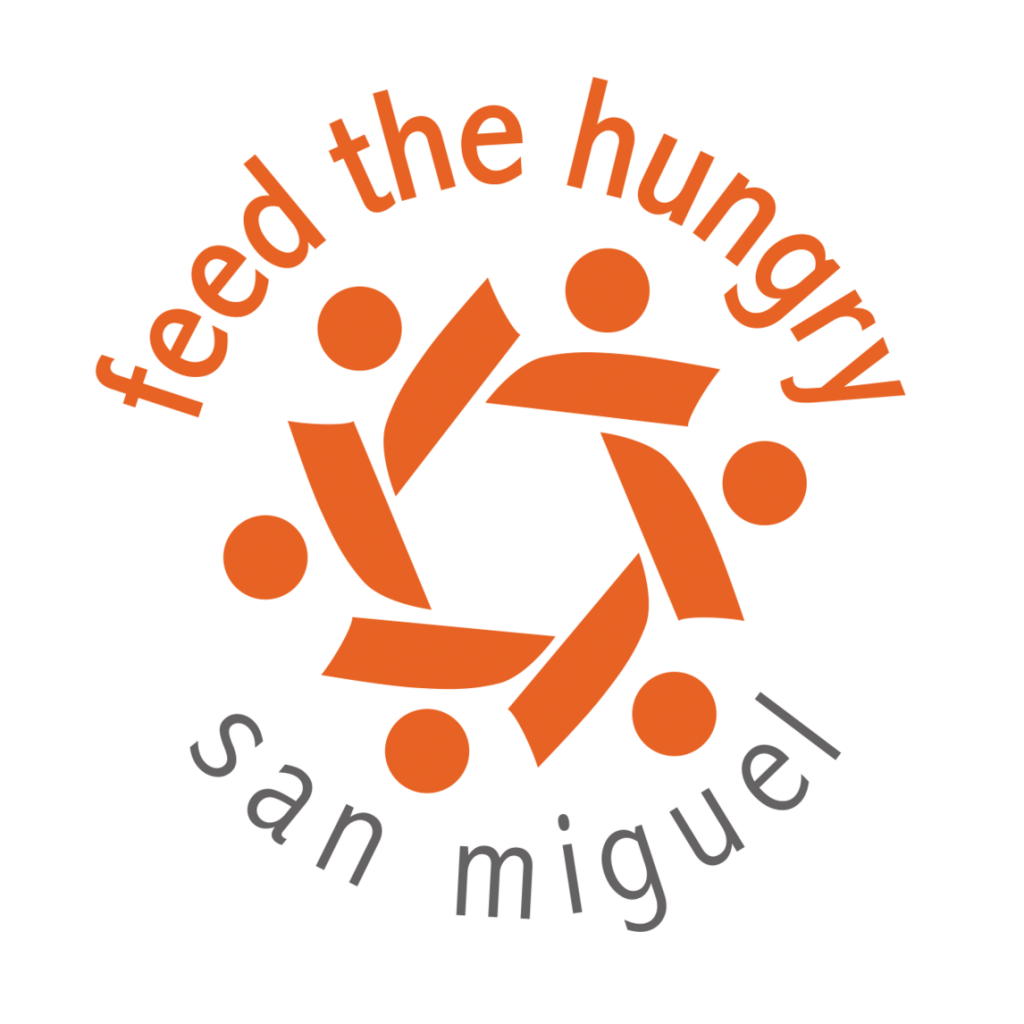For Mark Krakowski, the journey to becoming a Kitchen Angel for Feed the Hungry San Miguel was not just about giving back—it was deeply personal. His own story is one of survival, perseverance, and a profound understanding of what it means to go hungry. From being born in a displaced persons camp to carving out a life in Canada, Mark’s past shaped his commitment to helping others.
A Life Marked by Survival
Mark was born in Kazakhstan during World War II, where his parents had been sent after surviving 18 months in a Russian Gulag. His early years were marked by hardship—though he was too young to remember, his mother would later tell him how he used to cry, “Give me bread, Mom!” But often, there was nothing to serve at their table.
His family, originally from Poland, had fled Nazi persecution, only to fall under Soviet suspicion and be exiled to Siberia. Hunger was a constant companion. His father, a Polish soldier, had been forced to work under brutal conditions. When Mark’s father was caught gathering fallen grains from a field so his mother could make some sort of paste to eat, he was arrested and jailed. When Mark’s mother pleaded with a judge for her husband’s release, the depth of their desperation became painfully clear.
After the war, the family moved to Poland, then to Sweden, and eventually to Canada, where Mark grew up facing the struggles of a young immigrant. He was called names, faced discrimination, and worked tirelessly to build a new life. Despite these hardships, he pursued higher education, earning a Master’s degree in sociology before exploring various career paths.
Discovering San Miguel de Allende
Decades later, Mark was introduced to San Miguel de Allende by a friend who had read about it being a safe and welcoming place for solo travelers. What started as a short visit soon turned into a recurring stay. He found himself drawn to the charm of the town and its strong sense of community.
Through his involvement with the Amistad Canada organization, he learned about Feed the Hungry San Miguel, a nonprofit dedicated to providing nutritious meals to school children in rural communities. The cause struck a chord with him—he knew firsthand the physical and emotional toll of food insecurity.
Becoming a Kitchen Angel
Mark didn’t hesitate to get involved. He began by volunteering at Feed the Hungry’s food packing facility, where every Monday, volunteers gather to assemble fresh, nutritious ingredients for school meal programs. From sorting and packing food to helping distribute meals, he quickly realized the reach and impact of Feed the Hungry in the local community.

One of his most recent and memorable experiences was joining the school he sponsors during lunch time, Ex-Hacienda de Peña Blanca, a school that serves 100 school lunch meals for its kinder gardeners and elementary school age children. “It was a highlight of my stay,” he recalls. Seeing the children receive their daily meals—and knowing that for many, it was their only nutritious meal of the day—reinforced the importance of the work being done.
He was particularly struck by the challenges these children face beyond hunger. Some must walk an hour to reach secondary school, with transportation often limited to riding burros or walking long distances. In one instance, he learned that four students from another Kitchen Angel location had to drop out simply because they couldn’t afford school uniforms. A fellow volunteer, Peter, quietly covered the cost, ensuring those children could continue their education.
Why It Matters
Mark’s background in sociology, along with his personal experiences, gives him a unique perspective on food insecurity and its long-term effects. He understands that childhood malnutrition leads to irreversible damage, affecting cognitive development, self-esteem, and future opportunities.
He sees Feed the Hungry not just as a feeding program, but as a holistic approach to combating poverty—educating parents about nutrition, improving community food sustainability, and ensuring children grow up healthy, focused, and ready to learn.

Looking Ahead
Though Mark doesn’t know what the future holds, he remains committed to Feed the Hungry’s mission. “I hope the program continues to expand and reach more children,” he says. He acknowledges that nonprofits like Feed the Hungry will face financial challenges, especially with increasing global economic uncertainty, but he believes in the resilience of the organization. For Mark Krakowski, becoming a Kitchen Angel is more than just a financial commitment. It is a full-circle moment—one that allows him to take the hardships of his past and transform them into a force for good. He understands, on a deeply personal level, the power of a meal—not just to sustain a body, but to shape a future.



